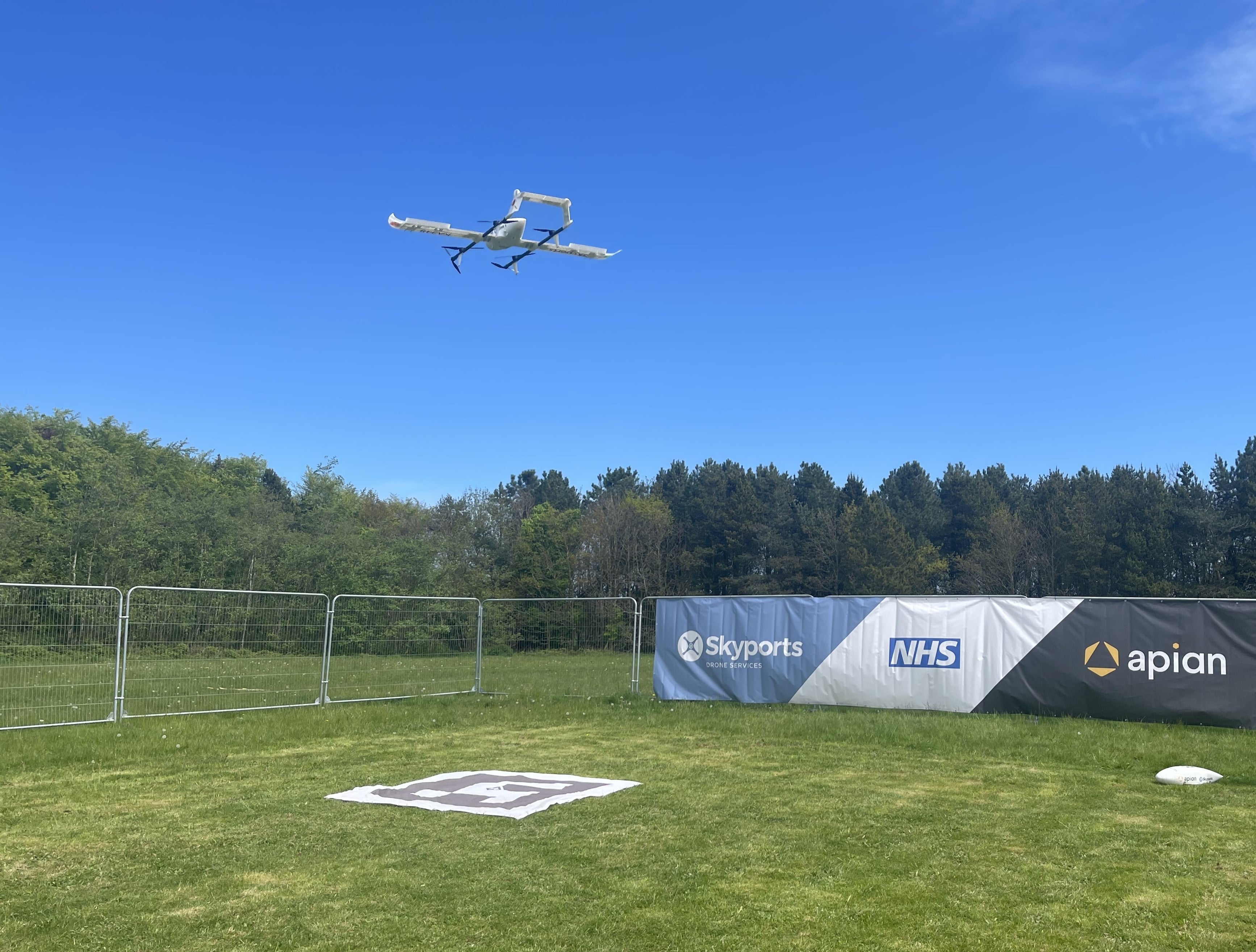Drones can be safely used to deliver urgent blood stocks between hospitals, a new research project suggests.
Researchers from NHS Blood and Transplant (NHSBT) wanted to see whether a component of blood can be delivered using drones without compromising its quality.
They sent identical stocks via road and through the skies to assess whether there would be any impact.
These “packed red blood cell components” were sent from Northumbria Healthcare NHS Foundation Trust’s Wansbeck Hospital and Alnwick Infirmary and back again.
The drones travelled distance of 68 kilometres over Northumbrian coastline in a journey that took just over an hour (61 minutes).
For the purposes of the study, the drone route was not the most direct available so in reality the distances would be shorter with quicker travel times.
NHSBT said that the drone journey was classed as a “beyond visual line of sight flight” – meaning the pilot cannot see the physical drone as it travels and monitors it remotely.
The journey was carefully planned out with the Civil Aviation Authority (CAA).
The ground vehicles took a route that was 74.6 kilometres and it took 68 minutes.
The results of this first trial are very promising, showing no compromise to the safety of the blood.
Dr Gail Miflin, chief medical officer at NHS Blood and Transplant
Overall, 10 blood packs were sent on 10 journeys – five by land and five through the air.
Each pack was then analysed to assess the quality of the blood and whether it would still be viable for clinical use.
Researchers examined the concentration of potassium and the percentage of bloods cells which had been destroyed.
They found there were no significant differences in the biochemical or haematological profiles of the blood that was flown or driven.
NHSBT said the results showed that drone delivery did not influence the blood’s quality or longevity and therefore could be used as a safe mode of transport.

“This study demonstrates the feasibility and safety of flying blood components by drone between hospitals in the United Kingdom,” the researchers from NHSBT and medical logistics company Apian wrote in the British Journal of Haematology.
Dr Gail Miflin, chief medical officer at NHS Blood and Transplant, said: “We’re excited to be a part of this joint study with Apian, by supplying and testing the blood used, to see if blood would maintain its suitability for transfusion when flown further than ever before via drone.
“The results of this first trial are very promising, showing no compromise to the safety of the blood. We look forward to seeing the outcomes from the next round of the study.
“Technology is advancing rapidly and we are keen to examine how innovative technology may be able to support and further decarbonise our extensive logistics operations in the future.”
Hammad Jeilani, medical director and co-founder at Apian, said: “We’re pleased the trial has clearly demonstrated drone delivery of blood packs is feasible and safe, supporting the potential for drones to transport critical healthcare supplies to patients, at the right time and with fewer emissions.”
A similar trial for blood platelets is being planned.


